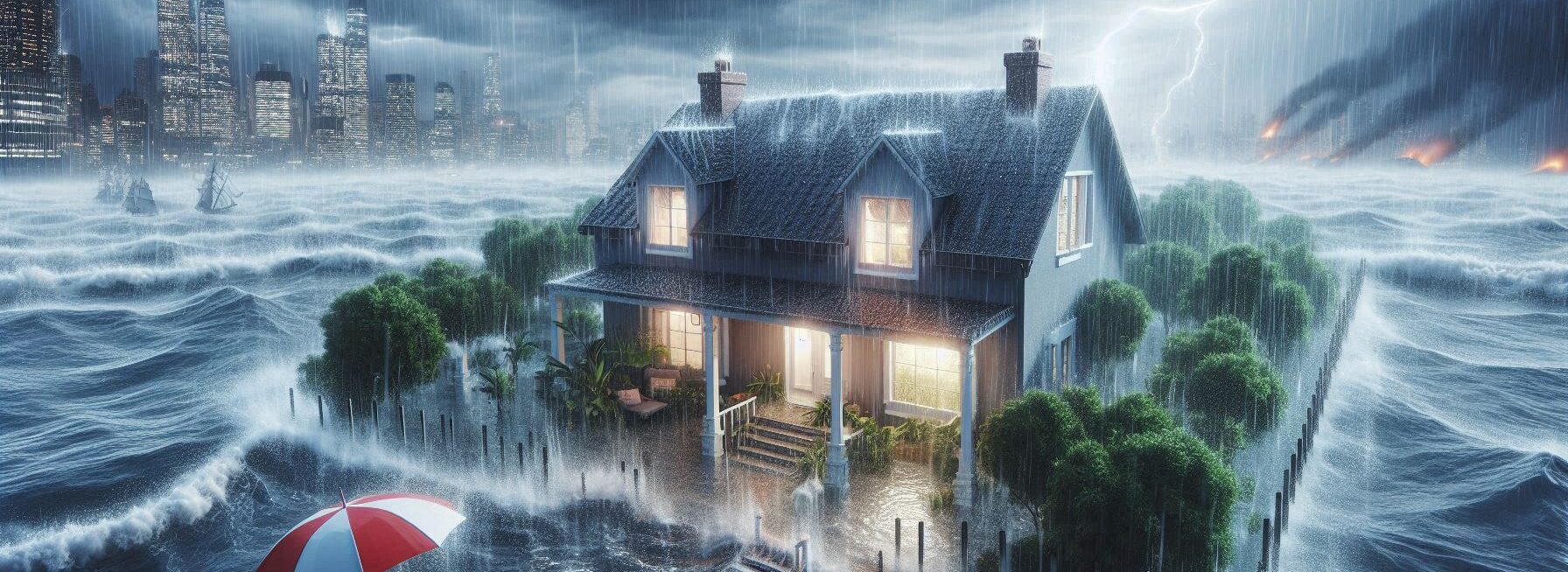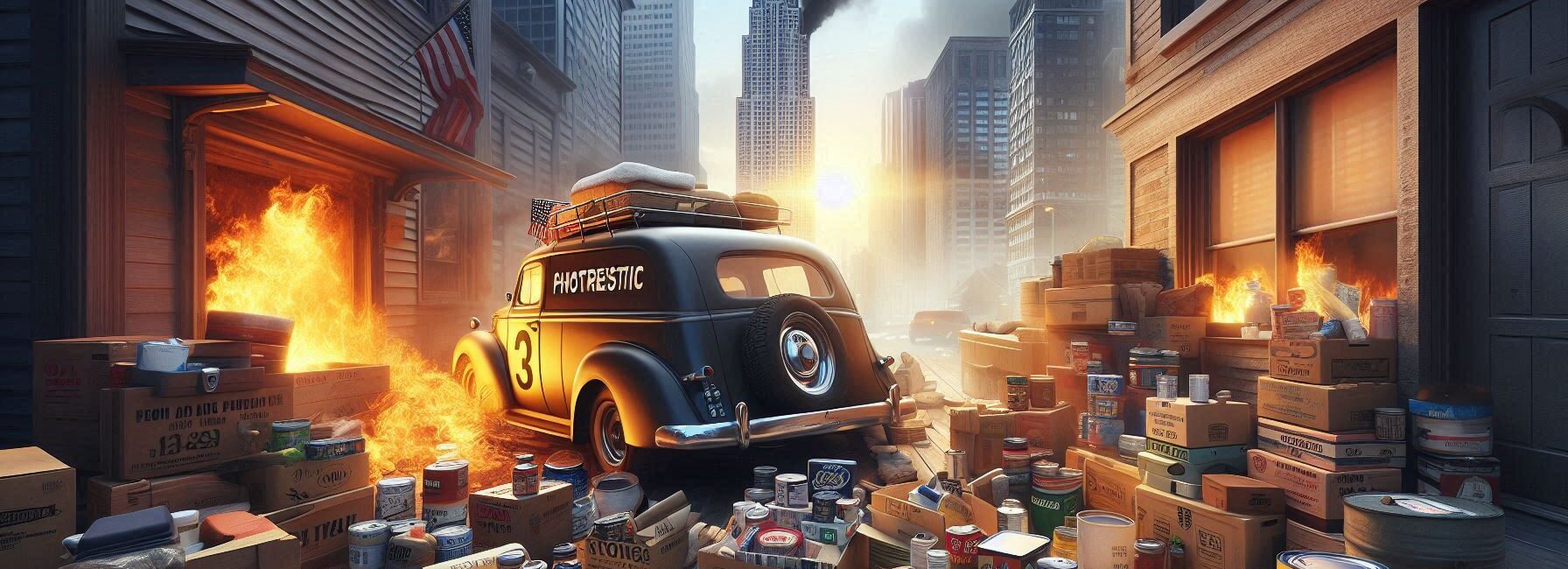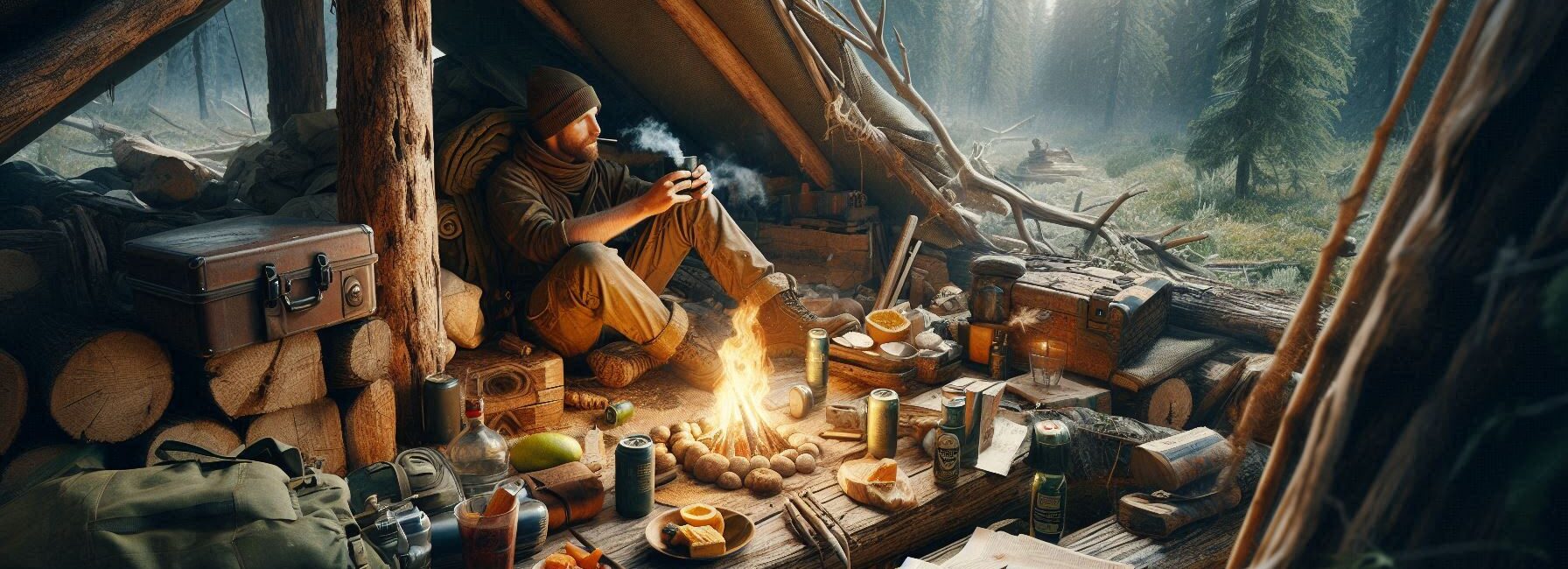Please Note: This post may contain affiliate links. If you click one of them, we may receive a commission at no extra cost to you. As an Amazon Associate, I earn from qualifying purchases.
Last Updated on November 2, 2025 by Kevin Collier

Top Takeaways and Key Concepts
- Assess available water by checking bottles, ice, and your hot water heater.
- Ration water by setting daily limits and reusing when possible.
- Collect alternative sources like rainwater, rivers, or lakes with proper filtration.
- Stay calm using deep breathing, meditation, and fun family activities.
- Restock supplies and plan larger storage for future water emergencies.
Imagine that you wake up one sunny morning. The sun is shining, the coffee is brewing, and you're ready to take on the world. You can feel the excitement building inside you. But then you turn on the faucet to get that first cool drink of water, and… stillness. No delicious water. The pipes just made a weird, gurgling sound.
Oh no! Welcome to the adventure of not having enough water. It seems daunting, but we can manage this together.
First, take a big breath. You really can do this. Keep in mind that this kind of event happens. Pipes can get clogged or the system can have a problem. It is bothersome, isn't it? But that doesn't imply your day is destroyed.
Check around. Is there anyone else having the same problem? A neighbor, maybe? Sometimes it’s a bigger issue in the area. If you’ve got a buddy nearby, share a few laughs about it. You can compare “waterless” stories and keep the mood light.
Grab some buckets or even a cool cooler if you have one. You can fill them up if you have any backup water stashed away. Ever tried to drink from a water bottle while doing a handstand? No? Now might be the time to get creative!
Think about all the things you can do that don’t need water. A dance party in your living room? Yes, please! Even taking a nature walk can be fun. Just enjoy the moments without stressing.
And when the water starts flowing again? Rejoice! Maybe treat yourself to an extra big glass of that sweet liquid. Celebrate with a little happy dance in the kitchen.
This little hiccup can turn into a fun story. You know, the one where you conquered the day without running water. You’ll look back and laugh. Keep that adventurous spirit alive!
Contents of This Page
*** Shop for Survival Gear - Tools - Kits ***
Survival Gear - Bags and Backpacks - Knives - Boots/Footwear - Communication
Outdoor Cooking - Gloves - Hydration - Dry Boxes - Water Filtration Systems
Tents - Sleeping Bags - First Aid Kits - Multi-Tools - Flashlights - Fire Starters
Navigation - Survival Food - Night Vision - Headlamps - Stun Guns - Binoculars
Understanding Your Situation: What’s Happening?
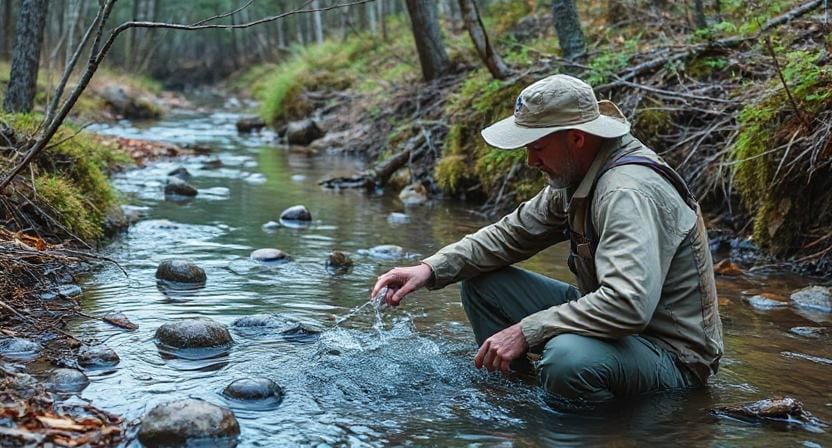
First things first: what made this abrupt dry spell happen? It might be anything from fixing local pipes (which is code for “we're fixing something while you suffer”) to natural disasters like floods or droughts.
It can assist to know what's going on to calm your nerves. It's simpler to deal with a hiccup when you know it's only a hiccup and not an extraterrestrial invasion.
Let's be honest: when there isn't enough water, it can seem like being on “Survivor,” but without the tropical scenery and immunity tests. So how do we deal with it without becoming grouchy cavemen? The answer is to be creative and ready!
Do you recall that old saying about putting money away for a rainy day? It's time to do it for real now! Congratulations if you've been stockpiling bottled water like it's gold. You're ahead of the game!
Checking Your Water Supply: What Do You Have?
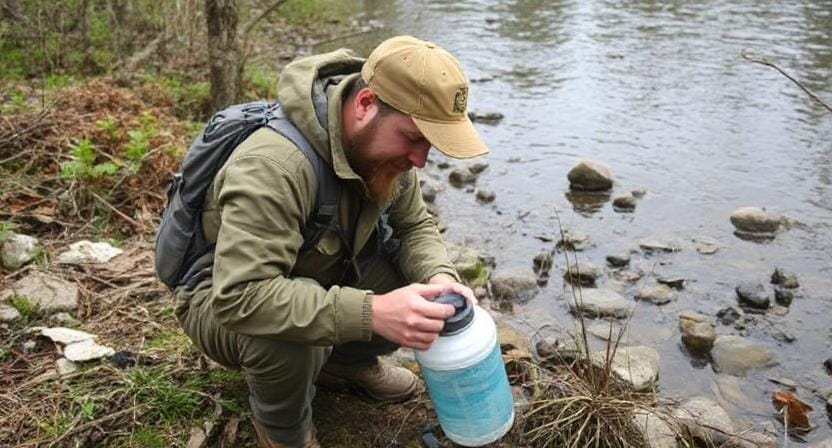
Now that we know what our problem is, let's look at what resources we have. Look around your house for hidden treasures, like the stash of bottled water under your bed (you know, the stuff you say you'll use eventually).
And don't forget about other sources! Grab the ice trays in your freezer if you have them. It's almost like magic that ice dissolves into water. Just be careful not to get too carried away when you make snow cones out of them; you may have other things to do right now.
It's interesting that a lot of people forget about their hot water heater. That tank can contain a lot of water! Just remember to verify if you need to take any safety measures before you start draining it like you're getting ready for a sauna party.
The Art of Conservation: Rationing Water
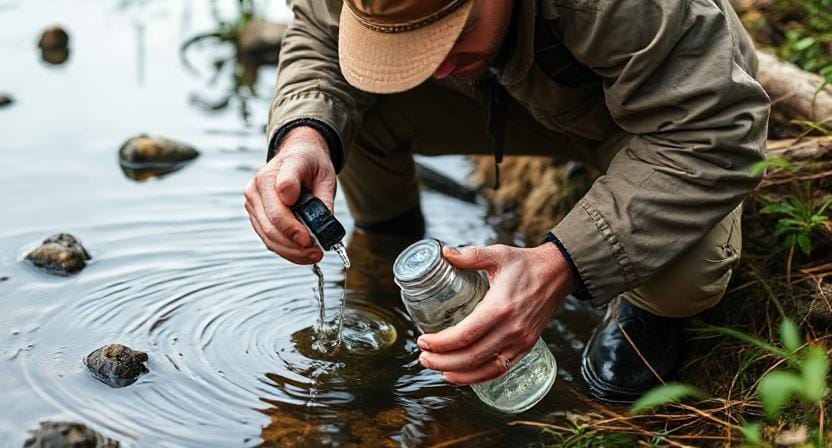
It's time to learn how to ration once you've looked at what you've got stored away. It's not just about living like you're on a reality show challenge; it's about making sure that every drop matters. I mean, do we really need three gallons of water just to clean our teeth?
Set daily limitations for each family member to start. If you need to, make a plan. There's nothing like sitting around the kitchen table with your family and talking about who gets how much water today to bond with them. And let's be honest: kids will always find methods to make their food last longer or sneak additional sips when they believe no one is looking.
Reuse what you can when using water becomes more important than ever. For example, save the water you use to boil pasta (extra points if it's spaghetti night!). That liquid gold may be used for a lot of things. For example, you could use it to water plants or flush toilets instead.
Finding Other Sources: Be Creative!
Okay, everyone, it's time to be like MacGyver! There are other places we can get water from; we just need to think outside the box of a regular kitchen faucet.
If Mother Nature decides she wants us to drink more water soon, collecting rainwater is one option to think about. Put buckets or other containers outside when it rains (but not when it storms; we're not looking for lightning strikes).
Just remember to verify your local laws on collecting rainwater before you jump right in!
You might also examine rivers or lakes nearby, but only if you have the right filters on hand. No one wants giardia to be their new best buddy during rough times.
By the way… Filters are useful too! Now is the moment for your filtration devices or purification pills to shine! You probably forgot where you put them, but now is the time for them to shine!
Staying Calm Under Pressure: Getting Your Mind Ready
Managing physical resources is vital during a short-term scarcity, but being mentally ready is just as important, if not more so! When I witness someone squander valuable drops cleaning their car during this situation, my stress levels can go up faster than my blood pressure.
Try relaxation tactics like deep breathing exercises (great for when you find out someone used all the toilet paper) or meditation sessions with peaceful music playing in the background, even if it's simply elevator music playing over and over again.
Playing games and doing activities with family members is a great way to keep everyone's spirits up during bad times and take their minds off of worrying about running out of supplies.
Lastly, and I can't stress this enough, don't forget to have fun during this whole thing! Laughing at silly things keeps our spirits up and tells us that life carries on even when the taps aren't running, though it doesn't entail as much lathering.
Planning Ahead to Restock Your Supplies
As we finish up our crash course on how to deal with short-term water shortages like pros—and yes, there will be quizzes later—it's important to remember that you should not just focus on surviving but also on thriving after the shortage!
Make arrangements now so you'll be better prepared next time. Stock up whenever you can, not just during emergencies but all the time, as part of good household management.
If you think there might be another dry spell in the future, you might want to buy bigger storage tanks that are made just for emergencies. After all, you never know when those taps might run dry again.
Hey, I have an idea. It's not simply about getting through it when the water stops flowing. It's about learning how to change and be a little innovative. That's the actual magic, isn't it?
Imagine this: you're among pals, laughing and talking about what to do next. You may make up goofy games like a scavenger hunt around the house. These are the times that bring us closer together.
Life is going to throw some strange things at us. Not having enough water or having to clean up messy spills in the kitchen. But there is a bright side. We grow by finding new ways to deal with these problems. You learn how to work together, solve problems, and think beyond the box.
That warm feeling you get when you're with people you love? It makes even the hardest days better. You help each other and laugh through it all. Can't find any water? Not a big deal! You share stories or play amusing games outside while you eat.
When something unexpected happens next time, remember that it's all about how you deal with it. It's a journey with lots of surprises. The most important thing is not simply to get by, but to enjoy the ride with the people you care about.
So, the next time the tap makes a noise, stop for a second. Smile, laugh, and accept the craziness. You're making memories. You're learning how to dance through the good and bad times in life.
Frequently Asked Questions
How do I check how much water I actually have during a sudden shortage?
Check bottled water, melting ice, and the water stored in your hot water heater to estimate your immediate usable supply.
Why is rationing water important in short-term emergencies?
Rationing prevents rapid depletion and ensures each person has a fair, measured daily amount for drinking and essential tasks.
Can rainwater be collected safely during a water outage?
Yes, rainwater can be collected in clean containers, but it should be filtered or purified before drinking or cooking.
Are rivers and lakes safe sources of emergency water?
Surface water can be used if properly filtered or purified, since untreated natural sources may contain bacteria or contaminants.
How can families reduce stress during a short-term water disruption?
Stay calm with deep breathing, meditation, games, and light activities to keep morale high and reduce panic.
Is it safe to reuse certain types of water?
Greywater from tasks like rinsing vegetables can be reused for non-drinking purposes such as flushing toilets or watering plants.
What should I do after the shortage ends?
Use the experience to restock supplies and upgrade storage capacity so the next shortage is easier to handle.
Suggested Resources:
How To Prepare for a Water Emergency
https://www.ready.gov/water-emergency
Emergency Water Storage Guidelines
https://www.cdc.gov/healthywater/emergency/index.html
Water Purification Methods
https://www.redcross.org/get-help/how-to-prepare-for-emergencies/safety-skills/water-purification.html

Kevin Collier is a seasoned survivalist and expert in prepping and homesteading, contributing to WiseSurvive.com. With a deep-rooted passion for self-sufficiency and outdoor survival skills, Kevin shares practical advice, strategies, and resources to help individuals prepare for any challenge. His informative articles cover a range of topics, from essential survival techniques to sustainable living practices, empowering readers to thrive in any situation. Whether you're a novice or a seasoned prepper, Kevin's insights will inspire you to take charge of your readiness and build resilience for the future.

